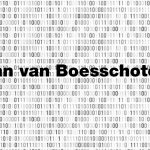Dit bericht verscheen eerder bij FOSSlife
Open source is playing an increasingly important role in addressing environmental challenges, says the 2023 “Open Source Sustainability Ecosystem” report, and many community-driven projects exist to help us achieve our goals.
Survey the Landscape
The report, released by LF Energy in partnership with Protontypes, surveys the landscape of projects in the open source sustainability ecosystem; it identifies projects making the biggest impact as well as areas where relatively few projects exist. “At the time of writing, 1339 projects have been identified worldwide. Of these, 1188 projects are hosted on GitHub, 27 on GitLab, and 125 on other websites or self-hosted Git platforms,” the report states.
An interactive diagram helps visualize the distribution of projects within various topics — with different colors representing Development Distribution Scores. For example, “45% of all identified projects can be found within biosphere, hydrosphere, water supply and quality, energy system modeling, mobility and transportation, and buildings and heating.”
A noticeable gap in projects can be seen in emission observation and modeling, which represents only 2.1% of all projects, the report says. “Despite the significant impact of anthropogenic emissions on the climate, there is a lack of open source tools, platforms, and communities that truly reflect the magnitude of the challenge.”
Further analysis of the projects included in the report “found that 25.8% are community-driven (i.e., do not have an institutional affiliation), 23.4% come from academia, 15.9% from governments, 14.3% from for-profit enterprises, 10.8% from non-profit organizations, and 9.7% from collaborative consortia.”
Recommendations
Besides providing tools to help visualize projects in this ecosystem, the report also offers more than 20 recommendations for effectively supporting and building open source sustainability, including:
- Enhance collaboration between state and non-state actors.
- Close the knowledge gap on the environmental impact of industry.
- Adapt and extend existing OSS to underrepresented countries in the Global South.
- Apply an “Open Source First” criterion when providing funding for sustainable technologies.
- Develop open data commons in conjunction with open source code
- Provide maintainers with training and support to preserve projects
- Monitor environmental sustainability through open Earth observation and open source data processing
- Maintain and defend an open orientation within academia.
Another recommendation involves the establishment of an open “Earth Intelligence Incubator,” for the purpose of identifying opportunities and incentivizing development of new projects.
Raise Awareness
We here at FOSSlife are thrilled by the availability of this comprehensive resource. We have outlined global risks and described the efforts of Protontypes, LF Energy, and other organizations in previous articles, which you can access below. This report, however, reduces the complexity of the landscape by making it easier to identify viable projects related to a particular topic.
Please join us in raising awareness of open source initiatives working to address our planet’s environmental crisis.
Contact FOSSlife to learn about partnership and sponsorship opportunities.
Dit bericht verscheen eerder bij FOSSlife














